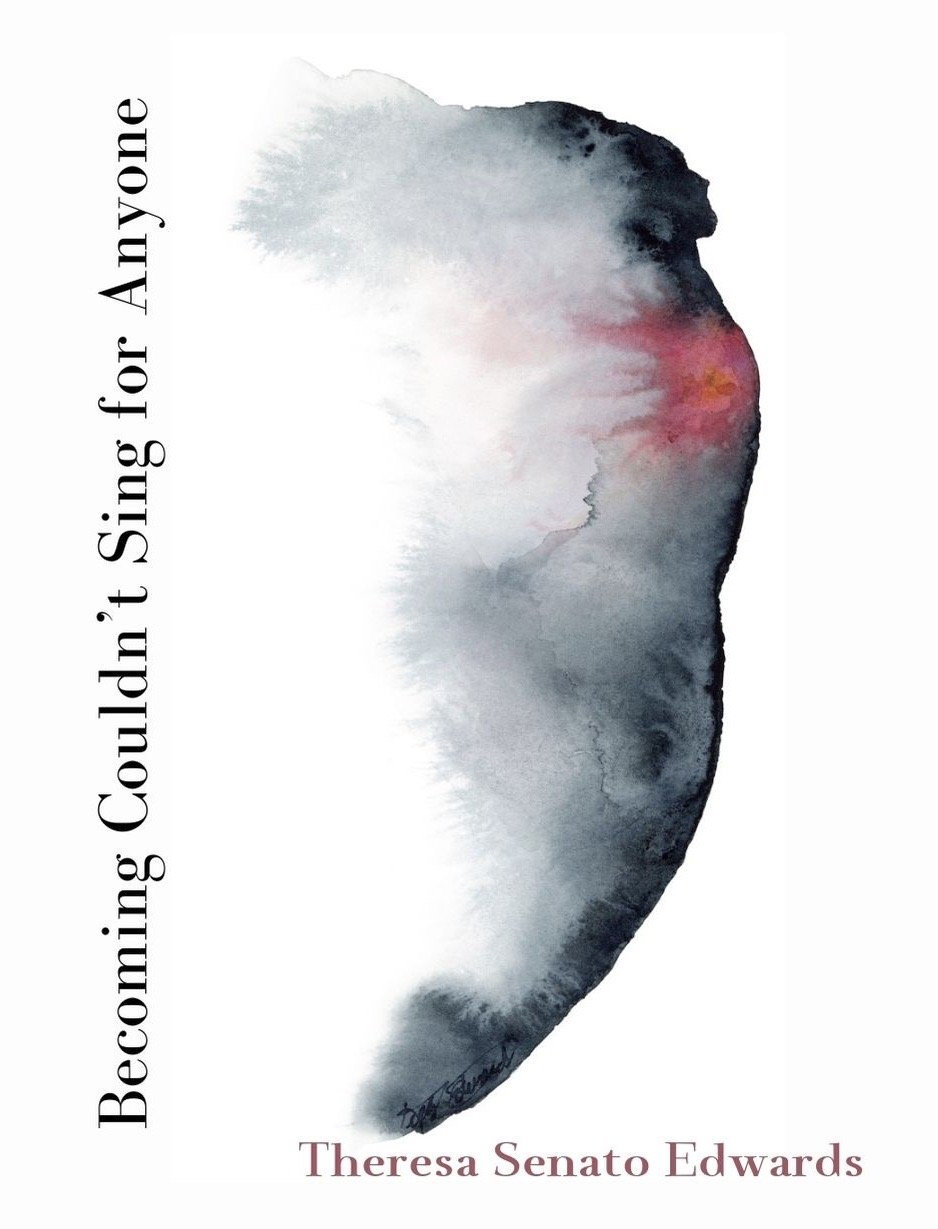Cover art: Lead with the Heart, Kelly Edwards
Praise for Becoming Couldn’t Sing for Anyone:
Through carefully crafted lyrics—consider the cascade of “a hunt to unveil / a gift, / steady the numb drug of existence”—where titles often double as first lines, Theresa Senato Edwards adeptly channels aspects of the archetypal Moirae: a daughter / sister / wife / mother in a “fight with memory on its phantom timeline.” Her protagonist flits through familial relationships—father and mother, two sisters, a husband and ex-husband, two sons—while facing the anxieties of what she’s inherited, what decisions she’s made, and what biological and habitual narratives she may have imparted. In her search for answers, her bird-self flies through the stained glass windows of memory and science, and mothers those bloodied, multi-colored shards into a book that works like a septempartite kaleidoscope: each section is a turn of the viewing tube, the reader invited to look through the lens of each poem as the words illuminate the tableau of a multi-selved “you,” a life recollected and reexamined—even reimagined—as that bird, tending the curve and bones of its wings, learns “how to stand / broken but fully healed.”
—Matthew Hittinger, author of The Masque of Marilyn
Cutting to the luminous bone of desire in every breathing, aching moment, these poems do not hold back in exposing the pulsing arteries of relationships and the recoveries from death and loss that make up the totality of time and existence. There is a glorious simultaneity in the way image, feeling, and uncompromising insight ignite on every page which never fails to excite, stop the heart and take the breath away.
—Cyril Wong, author of Infinity Diary
The poems in Becoming Couldn’t Sing for Anyone exist in the secret, unspoken cracks between sisters and daughters. Theresa Senato Edwards writes vulnerability into her very syntax. These poems explore the space of memory, “because your mind is wings,” and from the fragments of domestic violence, illness, abortion, and motherhood, Edwards crafts an ethereal language that cuts close to the bone.
—Jessica Cuello, author of Liar
This symphonic collection describes a life threaded with loss, which could have dwindled into silence. “But you chose speech, and your mouth would not muzzle / a girl’s belief in herself.” Edwards wields phrasing and sculpts lines with careful, sustained attention, yielding poems that honor trauma’s power without surrendering to its chaos. The provocative use of the second person invites readers to occupy chambers of familial and inter-generational memory, then ultimately propels us toward futures unknown. Becoming Couldn’t Sing for Anyone is a haunting, beautifully realized book.
—Sandra Beasley, author of Made to Explode
Theresa Senato Edwards has published two full-length poetry books, one with painter Lori Schreiner, which won The Tacenda Literary Award for Best Book, and two chapbooks. Edwards has been nominated twice for a Pushcart Prize, once for the Best of the Net, and once for Best Small Fictions Anthology. Her work can be found in Diode, Dialogist, Gargoyle, SWWIM, Thrush, PANK, and Verse Daily, among other journals. Edwards has spent time as editor in chief and poetry editor at The American Poetry Journal and as a poetry mentor in the COUNTERCLOCK Arts Collective. She was formally a Senior Poetry Editor at Harbor Review and is now the poetry editor for Pawling Living. Edwards holds an MFA from Goddard College and an MA from Western Connecticut State University. Visit her website at www.theresasenatoedwards.com.



